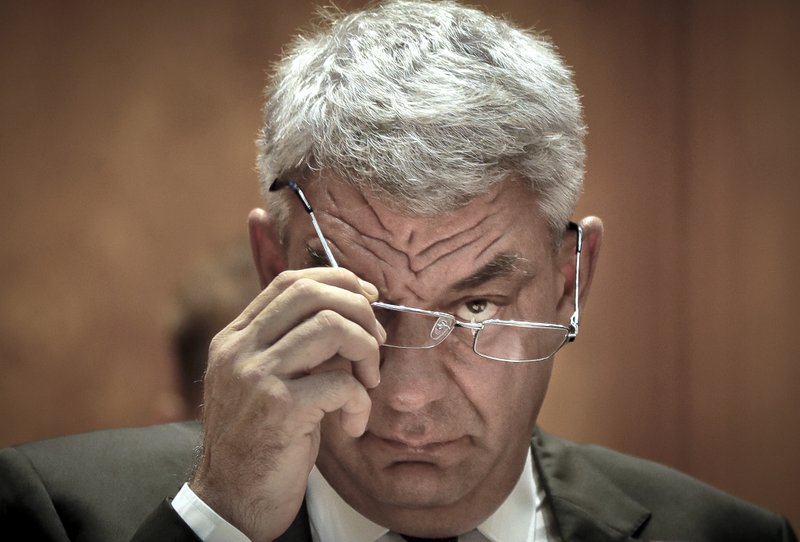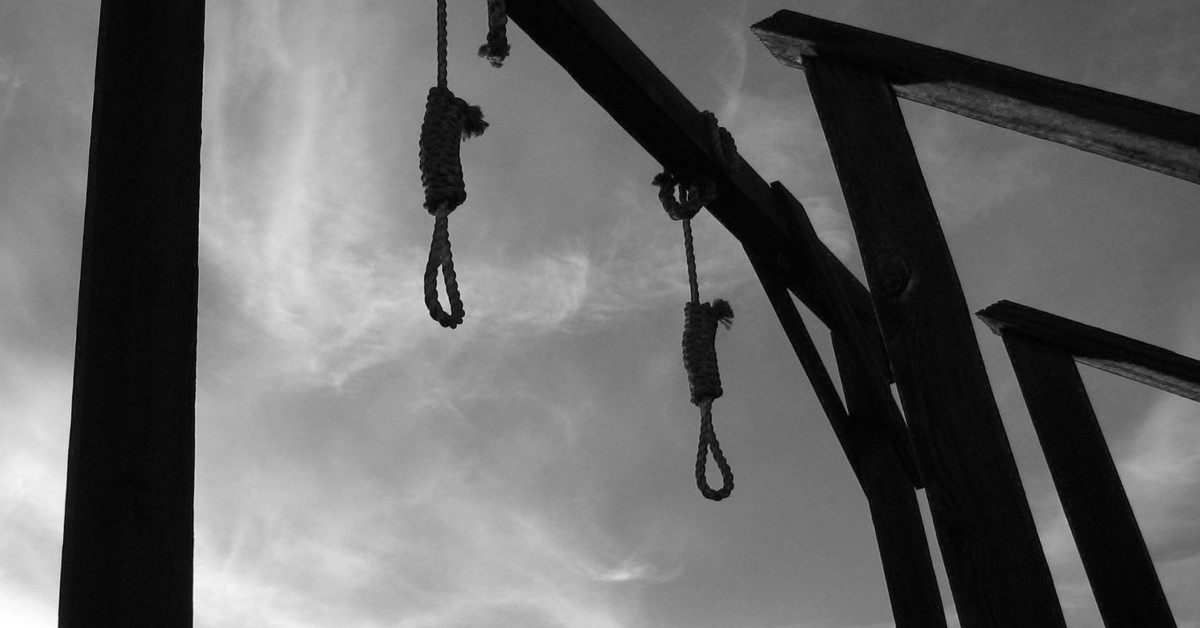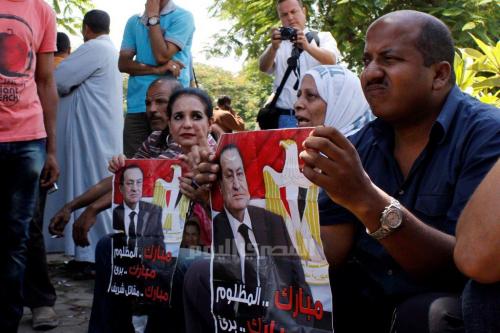Olfat Mohamed, whose son Islam Abdel Wahab was killed at Sayeda Zeinab Police Station on 28 January 2011, was devastated to see that the last two years have been much kinder on those responsible for killing her son than they have been for her.
Toppled President Hosni Mubarak appeared on live television Saturday, two days before a court ordered his release pending his retrial on charges of complicity in killing protesters during the January 2011 uprising. He seemed to be in high spirits.
“He was waving at people as if he was still president, his face looks rejuvenated. He’s 30 years older than me, but I looked at his face, then I looked at mine, and saw the signs of what happened to me since I lost my son,” a broken Mohamed laments.
Even though Mubarak remains in custody over other charges, the recent court order and his health condition, which reflected the preferential treatment he has been receiving during his detention place at the military hospital in Maadi, was a blow for grieving families who have been waiting for justice for their lost loved ones.
After the release and acquittals of most of the officers accused of killing more than 1,000 protesters in more than 30 cases, leaving only two officers serving time, families are starting to lose hope in ever receiving the retribution that President Mohamed Morsy promised.
“They gave us sedatives and they didn’t do anything. We keep going from bad to worse — we saw nothing but sorrow,” says Mohamed.
But the view is different through the public eye. The case is slowly slipping out of consciousness, given the perceived political stalemate and economic failures of the ruling regime of President Mohamed Morsy. Once deemed historic, the case and the anticipation with which the scene of Mubarak in a dock was awaited, are distant memories today.
“Citizens don’t give priority to Mubarak’s prosecution anymore. They are more concerned with the problems that the policies of the Muslim Brotherhood have created for them,” says Ahmed Fawzy, general secretary of the Social Democratic Party. “People are starting to feel that what Mubarak and [his interior minister, Habib al-]Adly did was not so criminal after seeing Morsy and the interior minister following suit.”
Echoing Fawzy’s thoughts, Sherif Kamal, an employee in a private company, says that “in all honesty, it doesn’t matter anymore.”
“There was injustice and corruption under Mubarak and the revolution was supposed to change the situation, but the same conditions remain. People are still being killed,” he says.
Sayed Abdel Salam, a tailor, says the moment when all eyes were on Mubarak waiting to see him punished has passed.
“Mubarak is now in the past. The revolution should have been completed on the spot with revolutionary courts and not dragged on for two years,” he says.
Fawzy, who is also a lawyer, says the evidence against Mubarak and his regime is not enough to indict them of murder under the Egyptian judicial system, and with the major faults that marred the investigation phase of the case.
Additionally, he says the judicial system doesn’t recognize many of the charges Mubarak should be prosecuted for, which encompass his 30 years as president and not just the days of the revolution.
Even though he doesn’t expect the regime to release Mubarak soon in fear of a popular backlash, Fawzy doesn’t rule out the possibility of the fallen ruler coming out of his retrial with a reduced sentence or even an acquittal.
Repeating what lawyers have been saying since the start of the trial, Fawzy says that in order for Mubarak to be prosecuted for all his crimes, he should be charged with crimes against humanity using international laws or in special revolutionary courts.
“It’s hard to believe that after 30 years, Mubarak is in jail for a villa. This is a funny joke,” says Fawzy, mocking the fact that the only charge keeping Mubarak in jail now is related to the misuse of funds allocated for the renovation of presidential palaces.
Having suffered a declining economic situation in the past two years, Tarek, a supermarket owner, says he’s now more interested in any measures that will improve his own situation, rather than the prosecution of Mubarak.
“If Mubarak gets released, how will that affect me? If he gets executed, how is that going to affect my life?” he says. “All that will happen is that the families of those who died will have some comfort — that’s all.”




